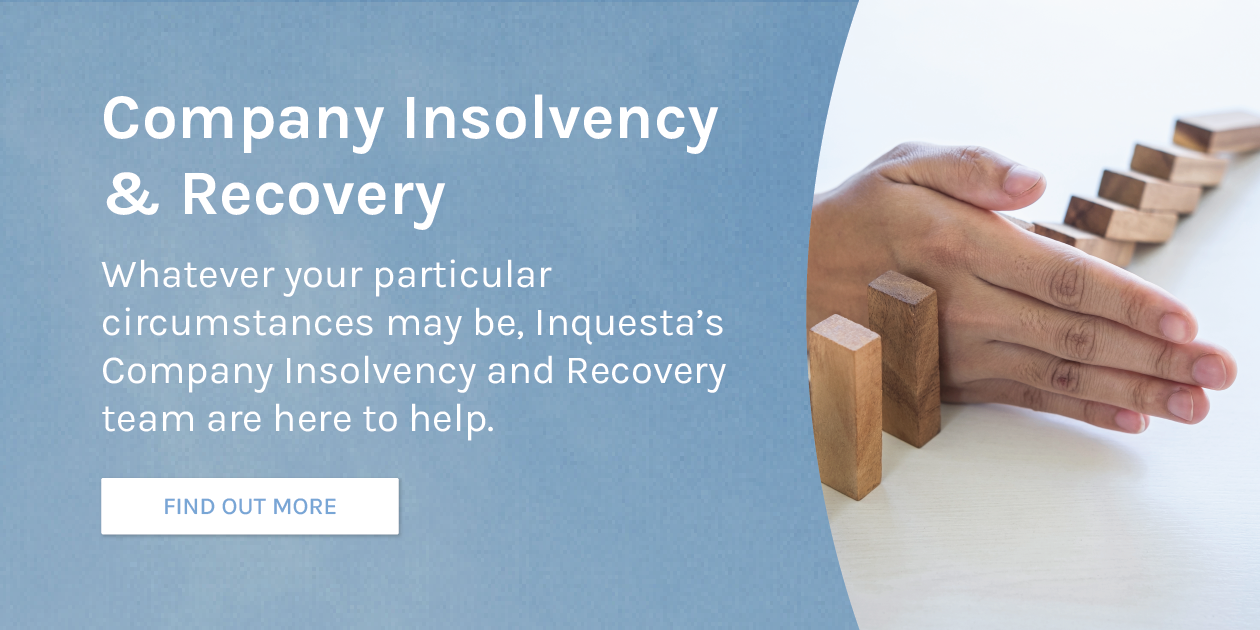The Ultimate Guide To Insolvency Practitioner
The Ultimate Guide To Insolvency Practitioner
Blog Article
The Best Guide To Insolvency Practitioner
Table of ContentsThe Only Guide to Insolvency PractitionerInsolvency Practitioner Fundamentals ExplainedThe Of Insolvency PractitionerOur Insolvency Practitioner StatementsThe Main Principles Of Insolvency Practitioner
Whether or not you need to use a bankruptcy professional (IP) to liquidate your firm relies on different elements. While engaging a bankruptcy practitioner for all types of liquidation is not a legal demand, doing so can typically enhance the procedure and make sure compliance with lawful demands. Liquidating a business is an essential decision that features significant repercussions.
It is a treatment used when a business does not have any kind of lenders, or all of their lenders can be repaid completely with statutory rate of interest. Understanding the various types of bankruptcy procedures can help you establish the most effective training course of action for your business's liquidation or various other formal bankruptcy treatments itself.
This is compulsory in order to stick to legal needs - Insolvency Practitioner. This is due to the fact that IPs have the essential certifications and experience to make sure that the liquidation procedure is conducted according to all applicable legislations and guidelines. By engaging a qualified insolvency specialist, you can have comfort knowing that your business's liquidation procedure will certainly be managed expertly and in conformity with the pertinent lawful needs
Insolvency Practitioner Can Be Fun For Everyone
The bankruptcy expert is assigned as a liquidator and is liable for handling the business and liquidator's debts outstanding liabilities and properties. This procedure includes offering off the company's properties and dispersing the proceeds to financial institutions. Upon completion of the process, the company is gotten rid of from the register at Business Residence.
Failing to do so can cause personal liability for the company or supervisor for the lender's debts. Voluntary liquidation, that includes Lenders' Volunteer Liquidation (CVL) and Participants' Voluntary Liquidation (MVL), is initiated by the business's directors and investors when they can no more pay their financial debts. In a CVL, the insolvency specialist is designated as the liquidator, accountable for managing business financial obligations and all business possessions.

An Unbiased View of Insolvency Practitioner
By assessing the knowledge and experience of potential bankruptcy specialists, you can make sure that you select a practitioner who possesses the required qualifications to manage your business's liquidation procedure successfully. While bankruptcy practitioner-led liquidation is typically the most proper training course of activity for firms encountering bankruptcy, there are alternative strategies to take into consideration, such as striking off and partial liquidation.
It's important to evaluate all available choices before selecting the next best service or strategy for your business. Striking off companies' registers is a more simple and cost-efficient means to shut dormant or little firms without any financial obligations or assets. To strike off a company, its name is removed from the Companies Residence register by sending form DS01.
Prior to selecting striking off, it's important to weigh the advantages and downsides of this strategy and take into consideration whether it's the appropriate selection for your company. Partial liquidation is another alternative to insolvency practitioner-led liquidation, in which a business liquidates particular properties and obligations while remaining to run with the remaining properties and obligations.
A Bankruptcy Specialist will have read the ability to recommend you of the very best training course of activity to take and make sure that everything runs efficiently. Unfortunately, it is not possible to liquidate a business without a liquidator. Assigning an authorised bankruptcy professional is necessary for the procedure of voluntary liquidation to start.
How Insolvency Practitioner can Save You Time, Stress, and Money.
It is feasible to shut and liquidate your company without utilizing a liquidator, given your firm is solvent and you fulfill the qualification requirements to dissolve or liquidate it. More Bonuses If your company is financially troubled, you might be called for to make use of a liquidator and begin official insolvency procedures. Right here are some various other helpful write-ups regarding company liquidation in the UK:.
Being in a placement where you're unable to pay your company's creditors is incredibly difficult. In an effort to prevent boosting the level of financial debt, several firms attempt to discuss straight with their financial institutions and consent to an informal setup. If the financial debt is quite small and owed to one lender, and the financial institution is being participating, getting in into an informal financial obligation plan is probably the very best remedy, as opposed to browsing the web for 'an insolvency professional near me'.
On the various other hand, if there are several creditors and the degree of debt is huge, lenders may not be so willing or participating. In order to avoid liquidation or bankruptcy, it is far better to employ an insolvency professional to create official proposals and work out with financial institutions in your place.
The smart Trick of Insolvency Practitioner That Nobody is Talking About
Whilst it is a means to manage financial obligation, there are substantial threats involved with this sort of financial debt plan - Insolvency Practitioner. If a creditor is ready to enter into an informal setup (IA) wherein the debtor has actually agreed to make routine, if reduced, repayments to settle the debt, it's crucial to stick to the arrangement

The lender is within their legal rights to back out of the agreement and request the courts for your firm to be liquidated at any time. An official arrangement that has been suggested by a bankruptcy practitioner in your place, and concurred by a creditor, supplies a much safer option.
Report this page